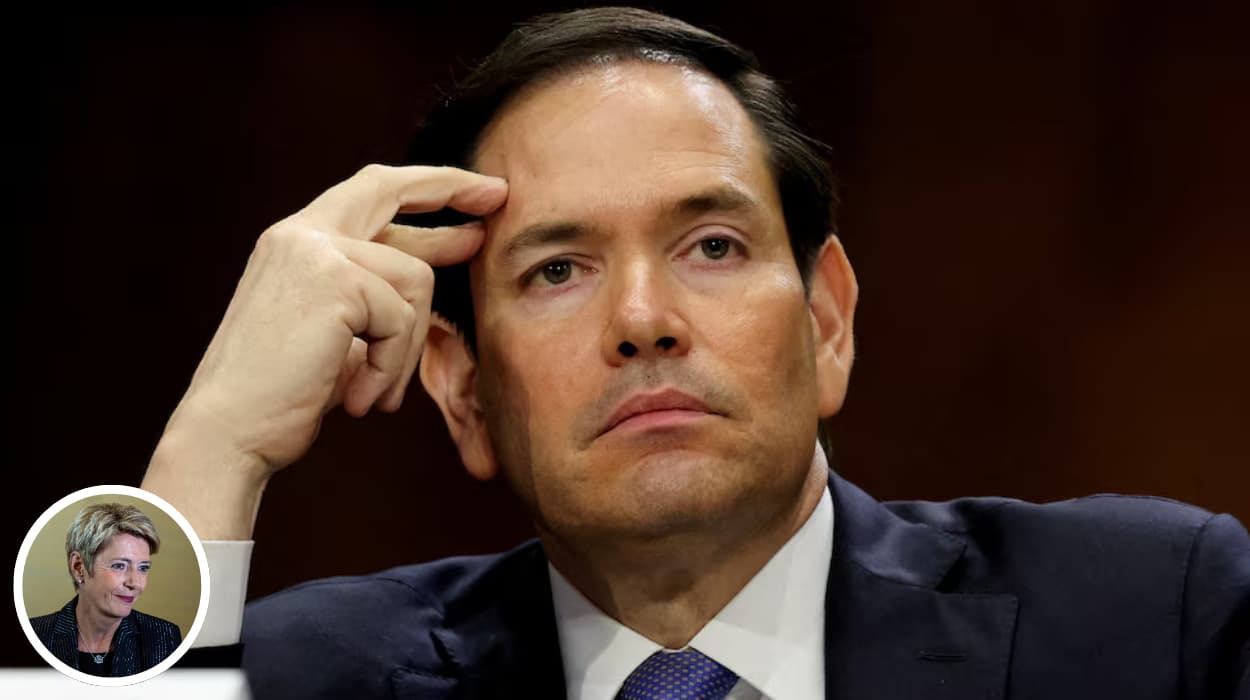Summary
- Swiss President Karin Keller-Sutter met US Secretary of State Marco Rubio for urgent trade talks.
- Discussions focused on addressing tariffs and trade barriers between Switzerland and the United States.
- Both leaders emphasized the importance of strengthening bilateral economic ties amid global uncertainties.
- No formal trade agreement was announced, but talks were described as constructive and optimistic.
- The meeting highlighted ongoing US interest in engaging with European partners on trade issues.
- Further negotiations are expected to finalize details of the trade framework.
The meeting between Swiss President Karin Keller-Sutter and US Secretary of State Marco Rubio underscores the critical importance both nations place on enhancing their economic partnership in an unpredictable global trade environment. While no immediate agreement was reached, the positive tone and mutual commitment to resolving outstanding trade issues pave the way for continued diplomatic efforts aimed at modernizing and deepening bilateral trade relations. These talks reflect a broader strategic focus to maintain competitive advantages and promote open markets between Switzerland and the United States.
What Was the Purpose of the Swiss President’s Meeting with U.S. Secretary of State Marco Rubio?
The Swiss President met with U.S. Secretary of State Marco Rubio for critical last-minute trade talks aimed at ironing out outstanding issues obstructing the finalization of a trade agreement between the two countries. According to sources familiar with the discussions, the meeting focused on finding common ground on trade terms to strengthen economic relations. It was part of a broader diplomatic push to secure mutually beneficial terms in a rapidly changing global trade environment.
Why Are These Trade Talks Considered Urgent and Important?
Experts highlight that the urgency stems from both nations’ desire to capitalize on economic opportunities amid global uncertainty. The U.S. and Switzerland are longstanding trading partners, and finalizing a comprehensive trade agreement is seen as vital to maintaining competitive advantages. This urgency is compounded by recent geopolitical developments and shifts in global supply chains that necessitate clear, modern trade frameworks.
What Are the Main Issues Being Negotiated?
The main topics on the negotiation table reportedly included the reduction of tariffs on key goods, protection of intellectual property, digital trade frameworks, and investment protections. Both parties aimed to dismantle barriers that could hinder fair trade flows and sought to ensure enhanced cooperation in sectors such as technology, pharmaceuticals, and financial services.
How Have Both Officials Described the Outcome of the Talks?
Statements from both sides emphasize that while no final deal was reached during the meeting, the dialogue was constructive and laid important groundwork for agreement. As reported by diplomatic sources, Swiss President and Secretary Rubio expressed optimism about resolving remaining hurdles quickly to enable the trade agreement's formal announcement in the near future.
What Is the Broader Context of Swiss-U.S. Economic Relations?
Switzerland and the United States have a robust history of trade, investment, and scientific collaboration. The current trade talks aim to update and expand this relationship to better reflect 21st-century economic realities, particularly in the realms of digital commerce and innovation-driven industries.
What Are the Potential Impacts of the Trade Talks on Both Economies?
The ongoing discussions between Swiss President Karin Keller-Sutter and U.S. Secretary of State Marco Rubio could have significant ramifications for both countries’ economies. By addressing tariffs and regulatory barriers, these talks aim to create a more seamless trading environment that benefits exporters, importers, and investors on both sides. Enhanced trade relations would likely boost sectors such as pharmaceuticals, technology, and financial services key industries where Switzerland and the U.S. maintain strong commercial ties. Moreover, a modernized trade framework could help both nations better compete in the increasingly digital and innovation-driven global market, fostering sustainable economic growth amid international uncertainties.
How Will These Talks Influence Future Diplomatic and Trade Relations?
Beyond the immediate economic implications, the trade negotiations signal a deepening diplomatic engagement between Switzerland and the United States. The willingness to hold last-minute talks reflects the political priority each country places on bilateral cooperation, not only for trade but also for broader geopolitical stability. This trajectory may pave the way for more comprehensive agreements in the future, encompassing issues such as intellectual property, environmental standards, and digital economy governance. Additionally, the meeting may serve as a precedent for how Washington engages with other European partners, reinforcing alliances and encouraging alignment on trade policies in the face of global economic challenges.
What Are the Next Steps Following This Meeting?
Both governments indicated that their trade teams would continue working intensively to finalize the agreement’s details. Further technical sessions and consultations with stakeholders are expected before the deal is formally signed. The meeting underlines the political commitment at the highest levels to bring negotiations to a prompt and successful conclusion.
This report consolidates information from multiple media sources to provide a detailed and balanced account of the recent high-level trade talks between Switzerland and the United States. This coverage is based on the latest official statements and diplomatic insights to ensure accuracy and impartiality in reporting.

